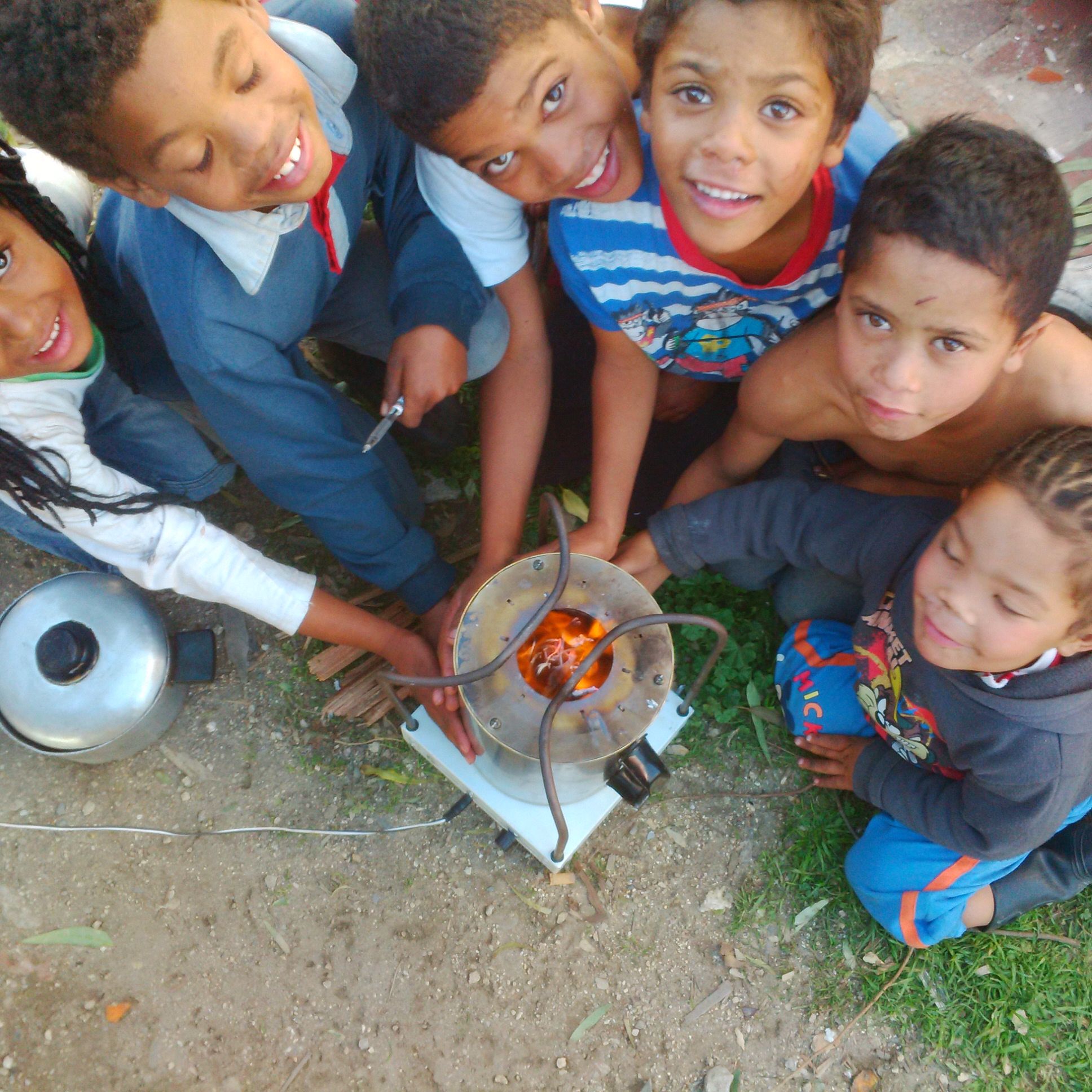A team of Industrial Design Engineering (IDE) students will embark on a Joint Master Project in South Africa this month to help co-design a sustainable, biomass stove.
Developed by clean-power technology company Khaya Power, the FAAB (Fan Assisted Appliance Base) Cookstove combines the functions of a solar home system and a biomass gasifier stove. The collaboration was made possible through Co-CreateSA, a platform that brings Dutch and South African innovators together to work on sustainable projects.
Aiming to address the need for clean thermal heating and cooking in households across the developing world, Khaya Power developed the FAAB Cookstove with a built-in, solar-powered system. A fan at the bottom of the unit ensures proper air circulation, which creates more heat and eliminates smoke and other harmful emissions. According to the company, the estimated cost of a dual purpose device is thirty percent cheaper than buying a solar home system and a fan-assisted stove separately.
“The stove design started off with a small tin and it turned into a two-in-one product charged by solar energy which can cook, light, charge a cell phone and support multiple accessories,” said Khaya Power founder Billy Hadlow. Be that as it may, the stove’s current design suffers from small usability issues such as difficulties with lighting and fuel replenishment. As a result, the TU Delft team is tasked with engaging with the local community in South African townships to explore user needs and to prototype new stove models for field testing.
“Some of the main challenges are to make this new stove technology aspirational [i.e. attractive], affordable, easy to use and producible,” said TU Delft Assistant Professor and project coordinator Jan Carel Diehl. Moreover, the project serves as an opportunity for students to study the impact of sustainable design interventions in the developing world. “Khaya Power and the IDE Faculty would like to really understand the needs and dynamics within poor communities and to provide entrepreneurial opportunities for creating micro energy businesses in low-resources contexts.”
That being said, Khaya Power is looking forward to working with the design students to improve their product. “We believe that collaboration with TU Delft will help us iron out the design issues and find the best design possible,” said Kaya Power co-partner Dave Lello. “Success ultimately is in the user acceptance of this new technology and their permanent conversion from what they currently use.”
###



Comments are closed.